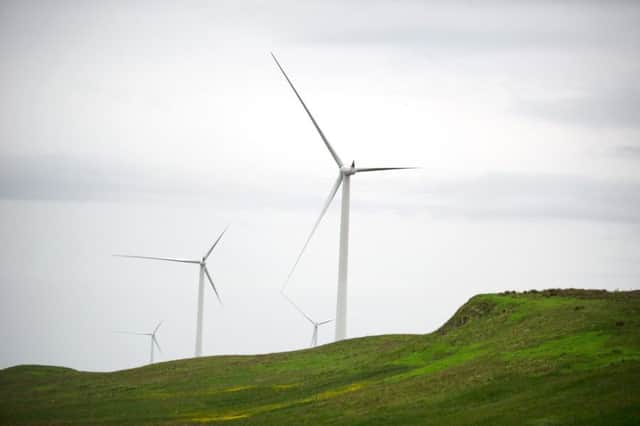Cross-party deal to battle global warming in Scotland


The Climate Change (Scotland) Act demands a reduction in greenhouse gas emissions of at least 80 per cent by 2050, with an interim target for a 42 per cent cut from 1990 levels in the next five years.
They have agreed to slash emissions from electricity generation and the food sector, as well as committing to a national infrastructure programme to make buildings more energy-efficient and the creation of a low-carbon transport system.
Advertisement
Hide AdAdvertisement
Hide AdBut while the parties have the same goals they will outline competing proposals for how they might be reached.
First Minister Nicola Sturgeon said Scotland under the SNP is a world-leader in tackling climate change, but the Liberal Democrat leader highlighted the government’s record on emissions reductions targets, which have been missed four years in a row.
Labour pledged to support environmental justice, while the Conservatives said their plan would be based on boosting employment and the economy. The Scottish Greens said energy-efficient housing and renewable power are key to achieving climate goals.
Lang Banks, director of WWF Scotland, helped negotiate the manifesto pledge.
He said: “It’s great to know we live in a country where our parliamentarians have long moved on from debating whether climate change is happening to competing about how we secure the benefits of a low-carbon economy.
“In the run up to next May’s election voters will be keen to learn how each of the political parties will use their plans for tackling climate change to create jobs, improve health and reduce inequality.”
Mr Banks said good progress has been made on cutting emissions from Scotland’s power sector but more work is needed to secure the benefits of a clean electricity system.
“To achieve that political parties must now set out their plans for Scotland’s transition to a completely renewable generation system that provides jobs and community benefits across Scotland,” he added.
Advertisement
Hide AdAdvertisement
Hide Ad“Parties must also turn their attention to how we heat our homes and offices. While more than half of all Scotland’s energy demand is for heating, only a tiny fraction is from renewable sources.
“We want to see political parties commit to a Warm Homes Act that helps bring affordable, low-carbon warmth to homes across Scotland and ensures that by 2030 no one has to live in a cold and draughty home.”
Emissions from electricity generation can be reduced by shifting to renewables or nuclear power, while demand can be lowered through energy-saving devices and improvements in behaviour.
A low-carbon transport system could include switching to electric cars and vans and using hybrid or alternatively fuelled buses and lorries, as well as encouraging people to ditch their cars and use public transport, cycle or walk.
Fitting double or triple glazing and improving insulation and draught-proofing can make building more energy-efficient. Measures such as district heating systems, where one centralised boiler provides heat to a community or development, can also lower wastage.
Food accounts for 30 per cent of the UK’s carbon footprint but technological and behavioural changes can help. These could include decarbonising the energy used in the food chain, changing consumption of meat and dairy products and planting more trees to counteract deforestation for agriculture and rearing livestock.
“Scotland is now more than three-quarters of the way towards meeting our emissions reduction target of 42 per cent by 2020, and with a comprehensive package of measures covering transport, environment and energy we are leading the international effort in tackling climate change,” Ms Sturgeon said.
“Building on our record, the SNP in government will continue to support individuals, communities and industry as, together, we further reduce carbon emissions and make Scotland the best place possible to live and work.”
Advertisement
Hide AdAdvertisement
Hide AdLibDem leader Willie Rennie said: “At the core of our vision will be a radical agenda to tackle climate change in a way which is credible, affordable and sustainable.
“I want to meet our world-leading climate change targets, which have been missed for four years running.”
Patrick Harvie, co-convenor of the Scottish Green Party, said: “We can cut emissions, transform our economy and create high-quality, lasting jobs by investing in energy-efficient housing, renewable power and more localised economies.”
“I believe in environmental justice, that the struggles for sustainability and socialism cannot be separated,” said Labour’s Kezia Dugdale.
“We need a joined up approach to make sure we reduce our carbon footprint and transform Scotland to a low-carbon economy that helps create strong sustainable growth.”
Ruth Davidson, the Scottish Tory leader, said: “Climate change is a threat to our environment, our security and our economic prosperity.
“We will set out our own plans for how we tackle climate change in a manner that boosts business and creates jobs.”